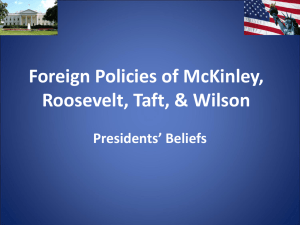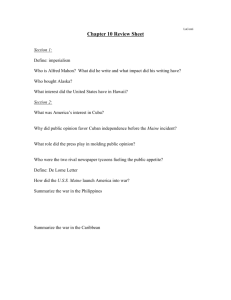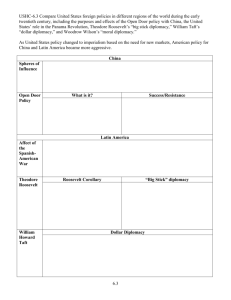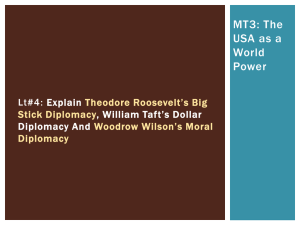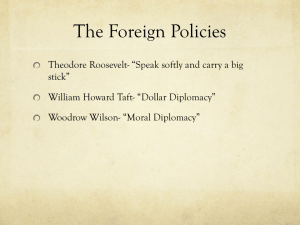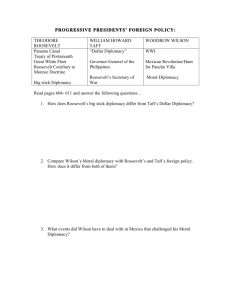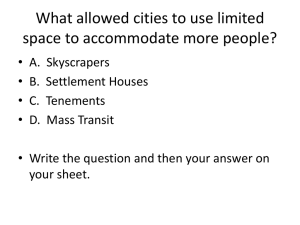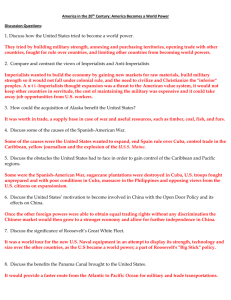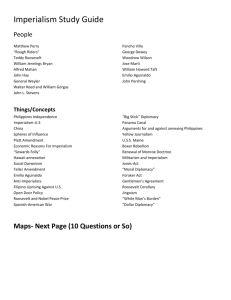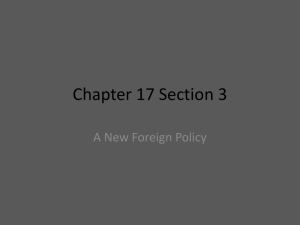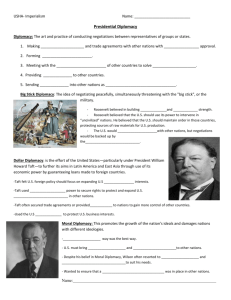Directions: Read the following passages on “Big Stick”
advertisement
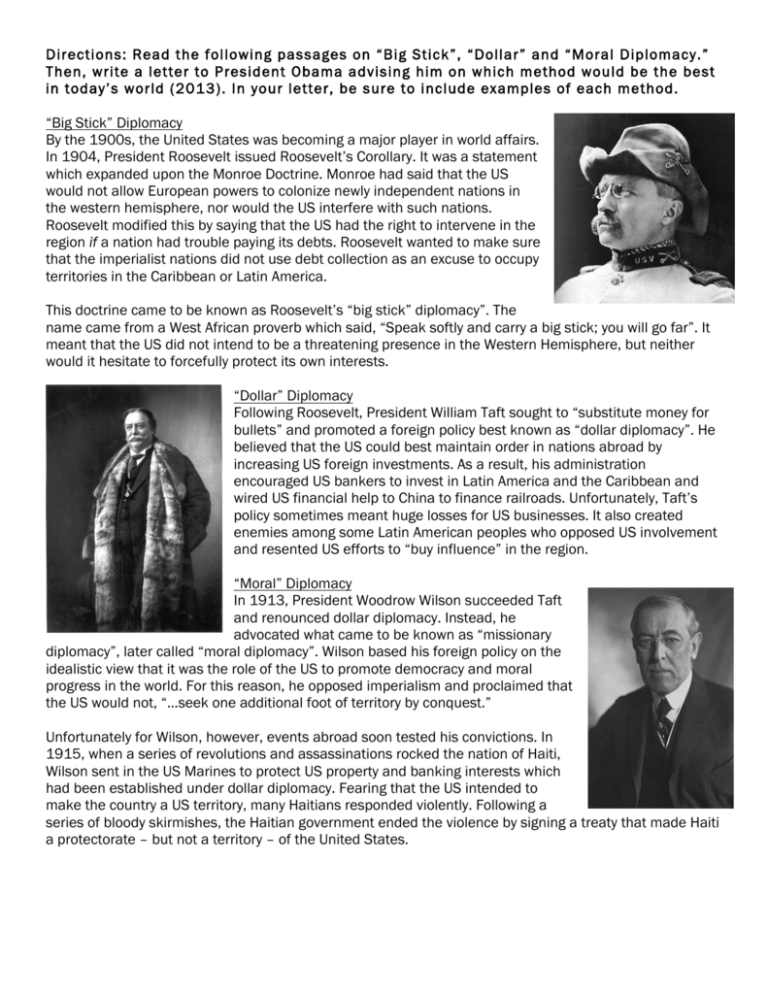
Directions: Read the following passages on “Big Stick”, “Dollar” and “Moral Diplomacy.” Then, write a letter to President Obama advising him on which method would be the best in today’s world (2013). In your letter, be sure to include examples of each method. “Big Stick” Diplomacy By the 1900s, the United States was becoming a major player in world affairs. In 1904, President Roosevelt issued Roosevelt’s Corollary. It was a statement which expanded upon the Monroe Doctrine. Monroe had said that the US would not allow European powers to colonize newly independent nations in the western hemisphere, nor would the US interfere with such nations. Roosevelt modified this by saying that the US had the right to intervene in the region if a nation had trouble paying its debts. Roosevelt wanted to make sure that the imperialist nations did not use debt collection as an excuse to occupy territories in the Caribbean or Latin America. This doctrine came to be known as Roosevelt’s “big stick” diplomacy”. The name came from a West African proverb which said, “Speak softly and carry a big stick; you will go far”. It meant that the US did not intend to be a threatening presence in the Western Hemisphere, but neither would it hesitate to forcefully protect its own interests. “Dollar” Diplomacy Following Roosevelt, President William Taft sought to “substitute money for bullets” and promoted a foreign policy best known as “dollar diplomacy”. He believed that the US could best maintain order in nations abroad by increasing US foreign investments. As a result, his administration encouraged US bankers to invest in Latin America and the Caribbean and wired US financial help to China to finance railroads. Unfortunately, Taft’s policy sometimes meant huge losses for US businesses. It also created enemies among some Latin American peoples who opposed US involvement and resented US efforts to “buy influence” in the region. “Moral” Diplomacy In 1913, President Woodrow Wilson succeeded Taft and renounced dollar diplomacy. Instead, he advocated what came to be known as “missionary diplomacy”, later called “moral diplomacy”. Wilson based his foreign policy on the idealistic view that it was the role of the US to promote democracy and moral progress in the world. For this reason, he opposed imperialism and proclaimed that the US would not, “…seek one additional foot of territory by conquest.” Unfortunately for Wilson, however, events abroad soon tested his convictions. In 1915, when a series of revolutions and assassinations rocked the nation of Haiti, Wilson sent in the US Marines to protect US property and banking interests which had been established under dollar diplomacy. Fearing that the US intended to make the country a US territory, many Haitians responded violently. Following a series of bloody skirmishes, the Haitian government ended the violence by signing a treaty that made Haiti a protectorate – but not a territory – of the United States.

